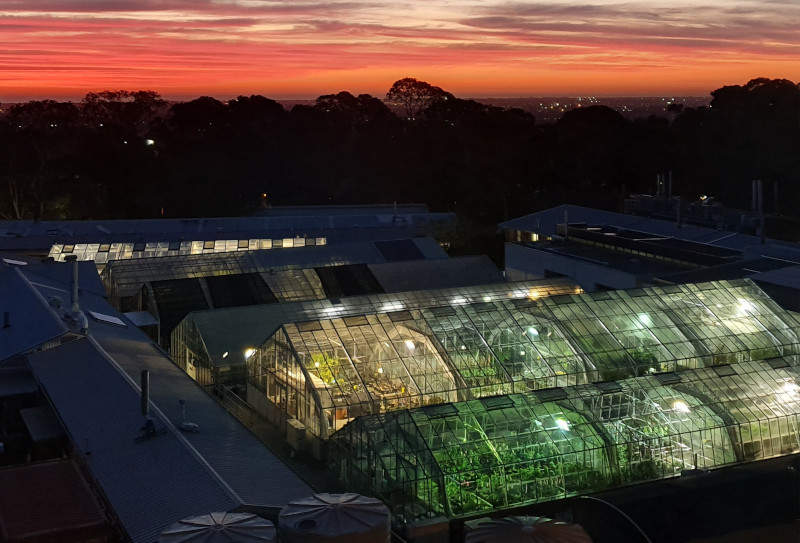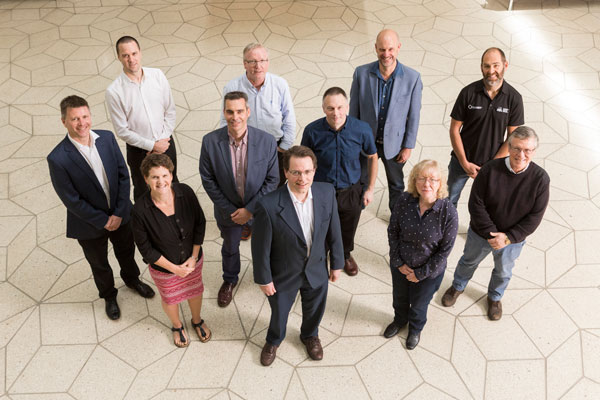
In 2019 Plant Energy Biology powered on with its eleven Chief Investigators, eight Partner Investigators from around the world, and its associated laboratories at host Universities that are run by the future leaders of our research field. These exceptional research teams have continued to make major advances in cell metabolism and signalling regulation, metabolic modelling, responses to changing environments, cellular transport, plant genomics and ecophysiology. Our research is aiding the Australian agriculture industry in their aims for crop improvement. We continue to strive to appoint the right people, to pursue the most rewarding projects, to make new discoveries, and to have an eye to their potential application.
PEB’s Alumni are also expanding, becoming more numerous than those presently working in PEB! These Alumni can be found in academia, industry and government in positions of influence and policy making in Australia and around the world. This year I had the pleasure of catching up with a number of our international Alumni in Europe and Asia and it was great to see how they are using their PEB experience to initiate important projects and make a real difference to the new communities they serve.
Important milestones from the Centre appeared in print in 2019. Most notable have been the array of new discoveries about how plants respond to the environment. Our researchers reported the evolutionary significance of chloroplast retrograde signaling to close stomata during drought stress, as well as how plants perceive and respond to rain drops hitting the surface of leaves. We discovered how TOR signalling regulates respiration rate in plants, linking nutrient availability with the choice of respired substrates. The direct impact of temperature and salinity on specific aspects of transport and metabolism was reported for the first time. In modelling studies, we have reported how the growth promoting features of heterosis can be examined through energy biology pathways, how considering salinity as a energy cost can reveal unexpected bottlenecks for plant performance and how optimal leaf trait modelling can be linked to the environmental conditions faced by plants in diverse ecosystems.
Exploiting the potential of these discoveries will be aided by the remarkable potential for synthetic biology to use our knowledge to build new capabilities into the plants of the future. We now have a growing number of synthetic biologists working and studying in PEB, who are actively building molecular tools for cell design. The two worlds of the Biologist and the Engineer are merging to form a new engine room to feed a growing world population. In 2019, our researchers built the genetic switches to enable these new capabilities and joined international consortiums to map out what the best targets for modification are in order to influence key traits of agricultural production.
People joining the Centre bring in new research minds, ensuring continual rejuvenation of our programs and projects. These individuals apply their different skills and backgrounds to what are often longstanding problems, and often ones we have failed to crack in the past. More than 35 Future Fellows, DECRA Fellows and International Fellowship holders have joined the Centre to develop their own research programs since it began. Major papers from these researchers appeared in top international journals in 2019 - check out some of their achievements in the later pages of this report.
In 2019, Clarivate Analytics Highly Cited Researcher Awards were announced for three of the Centre’s Chief Investigators (Matthew Gilliham, Ryan Lister and Barry Pogson) and Jim Whelan was elected a fellow of the Australian Academy of Science. Centre Associate Monika Murcha won the Jan Anderson Award from the Australian Society of Plant Scientists. Early career awards for research excellence and leadership were also won by Postdoctoral fellows Joanna Melonek, Brendan Kidd and Joel Haywood.
The Centre is committed to the mentoring of our staff and students and enhancing their skills to help them become independent researchers in the competitive world environment of academia, industry and government. It was a pleasure to see the Australian Eureka Prize for Outstanding Mentor of Young Researchers in 2019 being awarded to Barry Pogson for his work in development of mentoring amongst early career researchers in PEB. Our pledge in this regard is found in our Mentoring to Independence Program (M2I). Through a series of events and opportunities this program aims to aid independence, provide flexible skilling and ensure our staff and students build the professional networks they will need for the next phase of their scientific journey.

As a Centre we largely use tax payers’ money as we explore the world of plants around us. It is essential we honour this trust that society has placed in us and use our discoveries to make a difference in the immediate society we live in and in the global society we depend on. That difference does not always need to be financial, but it does need to be both tangible and explainable. Combining our expertise and knowledge in partnerships with industry on selected topics of interest to investors and stakeholders can drive such innovation. Applying high-throughput metabolic and hyperspectral-based tools to screen wheat lines for drought responses and respiratory losses, producing wheat, barley and soybean with modified metabolism to improve plant stress tolerance, and changing the organic acid accumulation in Shiraz using GABA signalling are just some of the ways we are meeting industry needs with new solutions.
To broaden and deepen the conversations we can have with people from all walks of life and to explain the relevance of what we are doing, we have continued to develop Virtual Plant Cell (VPC). Through this resource anyone can become immersed in, and interact with, the inner workings of a plant cell. VPC helps audiences to experience the complex processes that our scientists study and consider “how little things make big things grow”. During 2019, thousands of people from around the world have put on a VR headset to explore plant cells.
Alongside this new experience of plant cells, we are rapidly making our virtual reality experience a valuable, curriculum-aligned and evaluated teaching resource to capture the imagination of a new generation of plant energy biologists.

Professor Harvey Millar
Director
